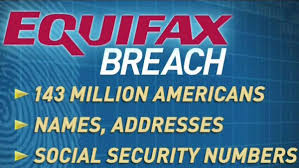On Tuesday, May 29, Congress passed a bank deregulation bill. Among other provisions was one that will soon make credit freezes free to consumers. This is thanks to the Equifax hack last fall that impacted close to 150 million people and put their personal information and financial security at risk.
At the time, Equifax offered customers free monitoring but at first seemed they would charge consumers a fee for the service of freezing their credit. Typically there is a fee that rangse between $2 to $10, varying by state and by each of the three main credit bureaus – Equifax, TransUnion and Experian. Consumers responded so negatively to this that Equifax relented and offered the service at no charge. However, that only froze a person’s credit account with Equifax – it did not freeze it at the other two credit bureaus, so it was left up to consumers to decide whether to pay to have their credit files frozen at all three bureaus.
Why do a credit freeze?
Having your account monitored means you’ll be made aware of something suspicious if it happens to your credit account, but that typically means you’ll hear about it after something bad has already occurred. A freeze stops companies from accessing your credit records, which stops new lines of credit from being opened in your name in the first place.
The timeframe for credit freezes to be provided for free in all states is expected to be about 4 months after the president signs the bill into law. Most are glad for this move, though some desired even stricter measures.
When you freeze your credit file, you’ll have a PIN or some means of authorizing you to unfreeze it for times when you wish to open new credit lines for yourself. If you have no plans to do so for awhile, keeping it frozen is a good idea. However, existing lines of credit can still be hacked so it’s wise to be vigilant with monitoring on your open accounts.
Taking these safety steps is always good best practices but they are after-the-fact reactions. A better scenario is to keep data from being stolen in the first place. Visit Virsec’s resource page to see how your company can take proactive measures to protect your critical application and customer data.


